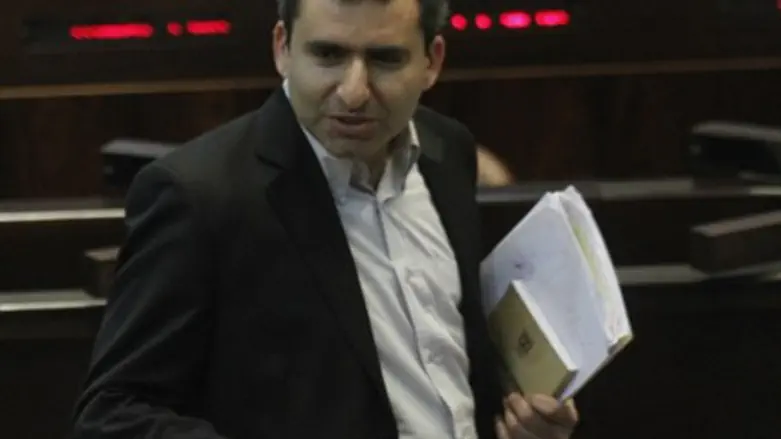
Israel and the European Union will drift apart unless they can compromise on new EU guidelines which boycott Israeli entities operating beyond the 1949 Armistice Lines, Deputy Foreign Minister Zeev Elkin (Likud-Yisrael Beytenu) warned in an interview with Reuters on Friday.
The guidelines forbid EU member states from cooperating, transferring funds, giving scholarships or research grants to bodies in Judea and Samaria, eastern Jerusalem , and even the Golan Heights.
The two sides must overcome the dispute before the end of November, when a multi-million dollar EU research program called Horizon 2020 is due to be finalized.
Israel has warned that it might shun the key EU research program unless a compromise is found over the boycotting guidelines.
If there is no deal, Israel risks missing out on generous funding for its scientists and, Elkin said, Europe will lose Israeli-know how.
"If we fail to resolve this problem, the future direction will be a kind of separation between Israel and the European Union," Elkin told Reuters.
"We are the start-up nation. It would be a big mistake for Europe to lose its relations with Israel," he stressed.
A senior EU official visited Israel this week, promising that the 28-nation bloc wanted to work closely with Israel and its burgeoning hi-tech economy, but all efforts so far to bridge their differences have failed, the report said.
Despite Israel's intimate diplomatic and military ties with the United States, its biggest economic partner by far is the European Union, which accounted for almost third of all exports and imports into the Jewish state last month.
Elkin told Reuters the EU move was aimed at imposing new borders on Israel via trade sanctions rather than through on-going negotiations with the Palestinian Authority. He also said that it meant the Europeans could dictate where Israeli money went in any joint ventures.
"As it stands, we cannot sign Horizon 2020. It would force us to discriminate (against) our own institutions," said Elkin.
The EU has said it will not change the new guidelines, but is looking at ways for a flexible implementation of the rules.
"No progress has yet been made on reaching a common understanding," an official involved in the talks told Reuters.
Earlier this week, Palestinian Authority Chairman Mahmoud Abbas urged European and other foreign companies not to deal with businesses based in Israeli communities in what he considers “occupied Palestinian territory” - meaning eastern Jerusalem, Judea and Samaria.
"I call on European companies and foreign companies doing business in the settlements to put an end to their activities," he said after a meeting with European Council president Herman van Rompuy in Brussels.
"Such activities are a violation of international law," said Abbas.
Hundreds of legal experts from Israel and around the world have written to the EU’s Foreign Affairs Commissioner Catherine Ashton and asked her to annul the boycott.
(Arutz Sheva’s North American Desk is keeping you updated until the start of Shabbat in New York. The time posted automatically on all Arutz Sheva articles, however, is Israeli time.)